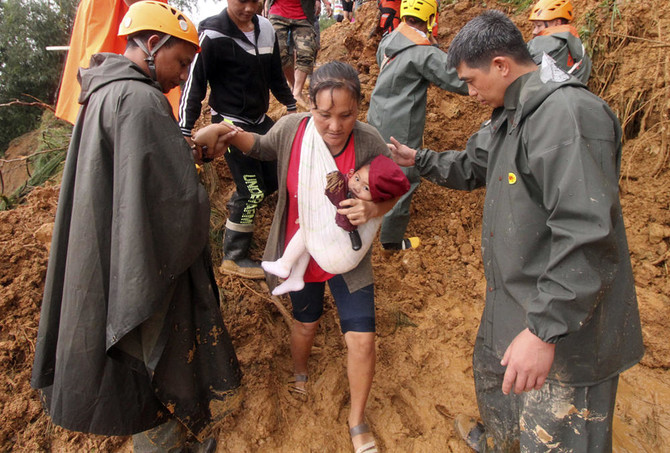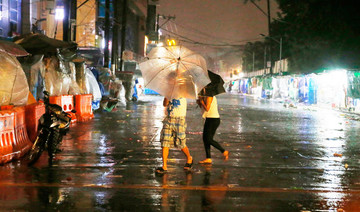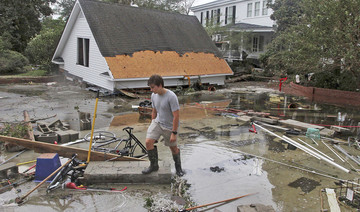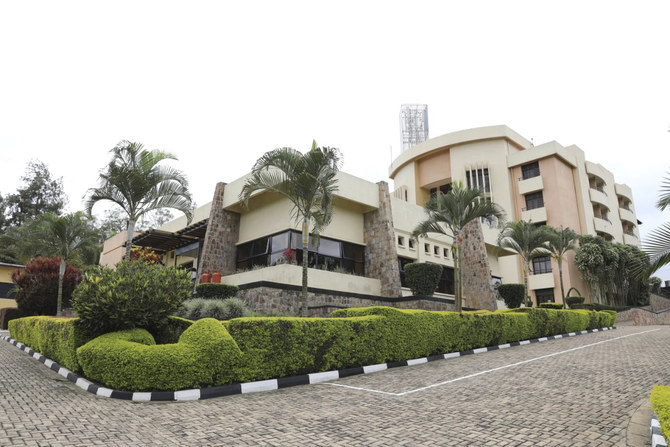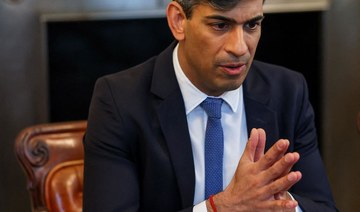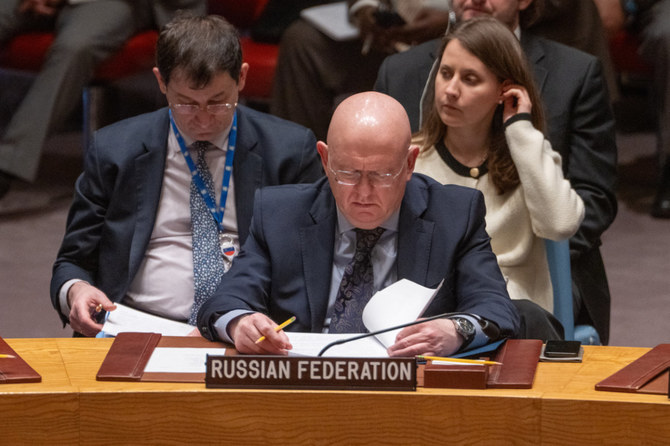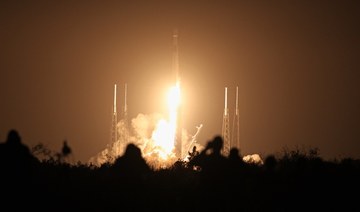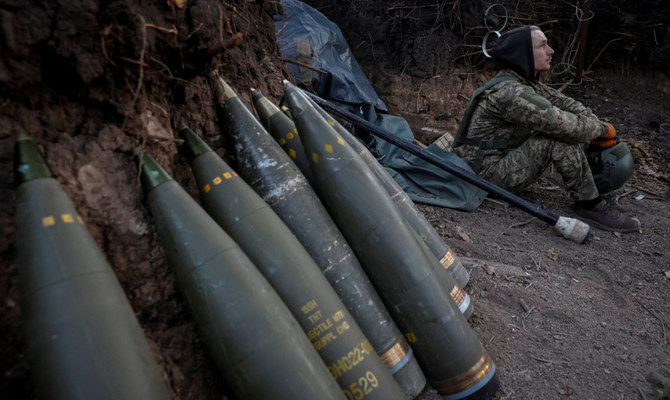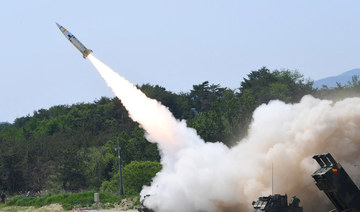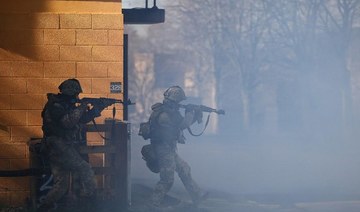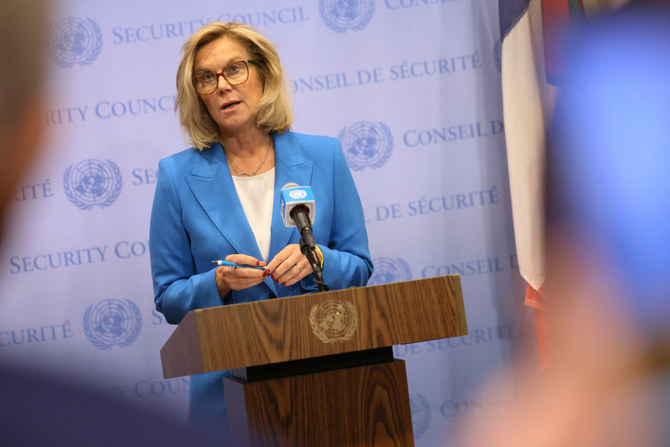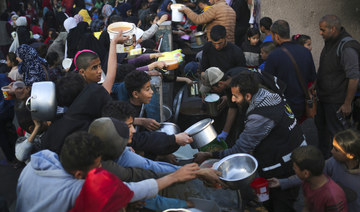HONG KONG/MANILA: Typhoon Mangkhut barreled into southern China on Sunday, killing two people after lashing the Philippines with strong winds and heavy rain that left at least 64 dead and dozens more feared buried in a landslide.
More than 2.4 million people had been evacuated in southern China’s Guangdong province by Sunday evening to flee the massive typhoon and nearly 50,000 fishing boats were called back to port, state media reported. It threatened to be the strongest typhoon to hit Hong Kong in nearly two decades.
“Prepare for the worst,” Hong Kong Security Minister John Lee Ka-chiu urged residents.
That warning came after Mangkhut’s devastating march through the northern Philippines, where the storm made landfall Saturday on Luzon island with sustained winds of 205 kilometers (127 miles) per hour and gusts of 255 kph (158 mph).
Authorities expressed fear the number of fatalities would further increase after it was reported that more than 40 small-scale miners were trapped in a bunkhouse hit by a landslide in Ucab, Itogon, Benguet province.
Using their bare hands, soldiers, policemen, and volunteers are digging through mud and rubble as they race against time to save the victims.
Of the 64 confirmed deaths, 49 were in the Cordillera Administrative Region (CAR) — with 39 in Itogon, nine in the country’s summer capital Baguio City, six in Mountain Province, and one in Kainga. Four more deaths were reported in Nueva Vizcaya, three in Cagayan and one each in Ilocos Norte and Metro Manila. Most of the victims died in separate landslide incidents.
Mayor Victorio Palangdan, in a radio interview, initially said they have they 33 confirmed deaths in Itogon alone, with seven wounded and 29 missing.
Palangdan added that there were approximately 43 people trapped in an old bunkhouse (located in Ucab village) which was hit by a landslide,
“We are worried they might already be dead,” Palangdan said, that fellow miners who are familiar with the area have volunteered to help in the search-and-rescue efforts.
Senior Superintendent Lyndon Mencio, Benguet police provincial director, echoed Palangdan’s statement in a separate interview, saying “There’s no sign of life” among the trapped miners.
As of reporting time, police said the bodies of seven of the victims have been recovered, bringing the death toll in Itogon alone to 40.
Palangdan said in the light of this incident, the local government will move to totally ban mining in their town. This, as he noted that the bunkhouse was owned by a more than 100-year-old mining company operating in the province.
“It’s an old bunkhouse of the Benguet Mining Corporation allowed the small scale miners occupied,” the mayor said, noting that the landslide was a consequence of unabated mining activities.
“It’s really the result of operations of big mining companies in the area. So what we are now doing is... for big mining companies to stop their mining operations otherwise this town will be erased off the map,” said the mayor.
Itogon, the largest municipality in Benguet, is an agricultural area but, according to the mayor, more than half of it is now a mining area.
“We would like to protect our environment. We are asking that no more mining should be done in this municipality,” he added, noting that more than half of Itogon was hit by landslides.
Before the typhoon hit the country, Palangdan said they already implemented preemptive evacuation of residents in high-risk areas, but the miners apparently chose to stay at the bunkhouse thinking they will be safe there.
“We already declared the area as “not livable” even before the incident,” Palangdan said, adding: “We do not allow anybody to construct houses there. We prohibit people from going there.”
Police, meanwhile, said continuous monsoon rains for the three weeks before typhoon Mangkhut also contributed to the widespread landslides in the municipality.
Authorities likewise said responders grapple with the challenge of reaching the landslide site in Ucab village as Itogon remains isolated after collapsed mass of soil, rock and debris rendered many roads impassable.
President Rodrigo Duterte on Sunday flew to Cagayan and Ilocos Norte to assess the damage caused by Mangkhut, and to discuss with his Cabinet the government’s response.
“I share the grief of those who have lost their loved ones,” Duterte said after being briefed on the casualties from the typhoon. He also instructed concerned government agencies to immediately restore power and roads and bridges in affected areas.
Cagayan and Kalinga, two of the provinces hit severely by the typhoon, have already declared a state of calamity.
Mangkhut, this year’s strongest storm so far, battered Luzon on Saturday, triggering floods and landslides that displaced thousands. It left the Philippine area of responsibility Sunday morning, but still continues to enhance southwest monsoon which will bring occasional gusty winds and scattered light to moderate rains over the Western provinces of Northern and Central Luzon.
Government forces have been mobilized to conduct search, rescue and relief operations in all affected areas.
Troops are also helping to clear roads blocked by landslides, fallen trees and debris.
In addition, the Northern Luzon Command (Nolcom) deployed aircraft for Rapid Damage and Needs Analysis, helped in transporting relief goods and provided additional assistance to residents in isolated areas where there are impassable roads.
Ahead of its landfall in Baggao, Cagayan, authorities said more than five million individuals are exposed within the 250-kilometer radius of the storm in the provinces of Cagayan, Isabela, Ilocos, Kalinga, Abra, and Mt. Province.
Commercial skyscrapers not spared
In China, meanwhile, Mangkhut continued its destructive path, with Hong Kong bracing for a storm that could be the strongest to hit the city since Typhoon York in 1999.
A video posted online by residents showed the top corner of an old building break and fall off, while in another video, a tall building swayed as strong winds blew.
The storm shattered glass windows on commercial skyscrapers in Hong Kong, sending sheets of paper pouring out of the buildings, fluttering and spiraling as they headed for the debris-strewn ground, according to several videos posted on social media.
Mangkhut also felled trees, tore bamboo scaffolding off buildings under construction and flooded some areas of Hong Kong with waist-high waters, according to the South China Morning Post.
The paper said the heavy rains brought storm surges of 3 meters (10 feet) around Hong Kong.
The storm made landfall in the Guangdong city of Taishan at 5 p.m., packing wind speeds of 162 kilometers (100 miles) per hour. State television broadcaster CGTN reported that surging waves flooded a seaside hotel in the city of Shenzhen.
In Macau, next door to Hong Kong, casinos were ordered to close from 11 p.m. Saturday, the first time such action was taken in the city, the South China Morning Post reported. In the city’s inner harbor district, the water level reached 1.5 meters (5 feet) on Sunday and was expected to rise further. The area was one of the most affected by floods from Typhoon Hato, which left 10 people dead last year.
Authorities in southern China issued a red alert, the most severe warning, as the national meteorological center said the densely populated region would face a “severe test caused by wind and rain” and urged officials to prepare for possible disasters.
Hong Kong’s Cathay Pacific said all of its flights would be canceled between 2:30 a.m. Sunday and 4 a.m. Monday. The city of Shenzhen also canceled all flights between Sunday and early Monday morning. Hainan Airlines canceled 234 flights in the cities of Haikou, Sanya, Guangzhou, Shenzhen and Zhuhai scheduled over the weekend.
All high-speed and some normal rail services in Guangdong and Hainan provinces were also halted, the China Railway Guangzhou Group Co. said.
(With input from AP, AFP and Reuters)





